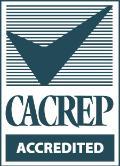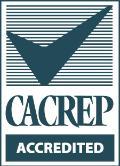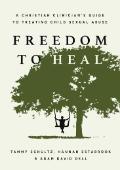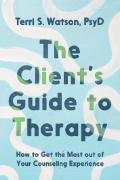Stepping Into a New Role
Alumni in Action
“I am confident that the deeply experienced, clinically gifted faculty, along with my talented, supportive cohort mates, all served to prepare me well to step into the therapeutic and redemptive role that God was calling me to as a mental health counselor.”
— Christopher Bobkowski M.A., '22
For more than 20 years, Christopher Bobkowski M.A. ‘22 served as a teacher in an inner city, public high school, and as a ministry volunteer at my church, but he had grown weary of bearing witness to the frontlines of trauma and crisis, anxiety and despair, broken hearts and broken families.
He prayerfully prepared to step through God’s open door to return to Wheaton Graduate School for a brand-new season of forming, shaping, and refining. Today he's a Licensed Professional Counselor at Stenzel Clinical Services.

/prod02/channel_1/t4_pending/media/graduate-school/degrees/psychology/cmhc/Mandy-Kellums-Baraka-Credit-Tony-Hughes-3.jpg)
 Accreditation
Accreditation/prod02/channel_1/t4_pending/media/graduate-school/degrees/psychology/cmhc/Ato-manful-2026-800X800.jpg)
/prod02/channel_1/t4_pending/media/graduate-school/degrees/psychology/cmhc/Jaclyn-Moy-2026-800X800.jpg)
/prod02/channel_1/t4_pending/media/graduate-school/degrees/psychology/cmhc/Katia-2025.jpg)
/prod02/channel_1/t4_pending/media/graduate-school/degrees/psychology/cmhc/Maddie-2025.jpg)
/prod02/channel_1/t4_pending/media/graduate-school/degrees/psychology/cmhc/Regina-Wong-1-1000X700.jpg)
/prod02/channel_1/t4_pending/media/graduate-school/degrees/psychology/cmhc/Ethan-Lacey-1-600X600.jpg)
/prod02/channel_1/t4_pending/media/graduate-school/degrees/psychology/cmhc/Lidya-Tandayu-2.jpg)
/prod02/channel_1/t4_pending/media/graduate-school/degrees/psychology/cmhc/Angkarin-Portrait-1.jpg)

/prod02/channel_1/t4_pending/media/graduate-school/degrees/psychology/cmhc/wheaton-spring-2022-085730-2.jpg)
/prod02/channel_1/t4_pending/media/graduate-school/degrees/psychology/cmhc/wheaton-spring-2022-090641-2.jpg)
/prod02/channel_1/t4_pending/media/graduate-school/student-life/Scott-Willis.jpg)
/prod02/channel_1/t4_pending/media/graduate-school/degrees/psychology/cmhc/Jacob-Loer.jpeg)
/prod02/channel_1/t4_pending/media/hngr/IMG_7305-1000X1200.jpg)
/prod02/channel_1/t4_pending/media/faculty/Ki-Chae.jpg)
/prod02/channel_1/t4_pending/media/faculty/Smyrna-Khalaf-1061.jpg)
/prod02/channel_1/t4_pending/media/faculty/Schultz-Tammy.jpg)
/prod02/channel_1/t4_pending/media/faculty/terri-watson-tower-talk-2-1000X1200.jpg)


/prod02/channel_1/t4_pending/media/4H5A1466-2.jpg)
/prod02/channel_1/t4_pending/media/graduate-school/degrees/psychology/cmhc/Updated-Chris-Bobkowski-1.jpg)